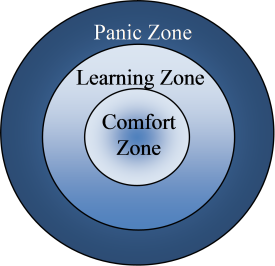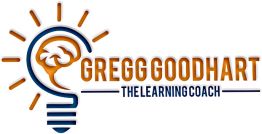The Magic of Etudes and How They Can Even Help With College Admission!

Some years ago, during my former life as a high school teacher, I was watching an interview on television with a professional college admissions consultant. He was asked what the biggest misconception this generation of parents has based on their experience. He answered quickly; they were told to be well rounded and that is not the case anymore. “Don’t be well rounded, be pointy,” he said.
He explained what he meant. If you are going to be an equestrian, be the champion equestrian. If you are going to be on the debate team, be an officer on the debate team while striving to be the Captain. You may never meet that rarified goal, but if you approach all of your work in this way you will stand out, and do very well receiving plenty of recognition.
This is not to say that esoteric things like titles should be the goal. One should work even the simplest aspects to perfection to understand that process.
Colleges Want Pre-Built Learners
Because the underlying skill set necessary to achieve and then succeed consistently is the same for all domains, once the discipline to engage in the necessary work has been built in the pre-frontal cortex of the brain it can be applied to learning anything else, and will be consistently successful. Colleges know this and understand that someone who has done that, those we might call gifted, have a great chance of significant success at the college level. They are pre-built learners, not magically gifted with, “talent.”
This is what academic and talent scholarships are based on. In order to get in to the best colleges you must demonstrate that you can consistently, over a period of years, be willing to engage in the work necessary to achieve. The less elite the school the lesser the pre-built learning requirement. These schools might consider first teaching their students how to learn. They would quickly become much more elite. This all has nothing to do with innate intelligence/ability.
Take your music study seriously as it will provide you benefits beyond your expectations if you do. So how, exactly, can you do this?
Stop Outrunning Your Technique
If you are learning a piece of music and there are sections that are significantly beyond your current technical ability then you are not learning the piece, you are remediating your technique (going back and building a skill you need, but don’t yet properly control) to be able to begin learning the piece. It is, essentially, just technique work like your scales, slurs, arpeggios, etc. Choose pieces to learn that are just slightly outside your ability, please listen to your teacher, and work on your technique separately, or combine the two and work on etudes!
The ability to engage in unpleasant deliberate practice, develop the discipline to do it regularly, and maintain it over long periods of time is a developed skill of high efficiency learning. When your cognitive skills are robust they enter every learning experience ahead of the curve as you have a rich mental model for the domain. It would be like developing yourself to bench press 300 pounds then being asked to bench 250. It would not be completely easy, but it would be very doable.
Go Long
In music study, etudes give us this opportunity in a format that is musical and, when well written, develops certain skills musically with a minimum of other skills so that one may focus on drilling down (thousands of varied repetitions) on just those things while making music. If the etudes are well chosen, please listen to your teacher, they will challenge you just beyond your ability (Vygotsky’s, “Zone of Proximal Development,” or what some call the, “Learning Zone,” for instance)

in certain areas, while laying off other areas, and allow you to do the massive amount of repetition necessary on basic foundational skills to build and strengthen the neural pathways that govern those skills. This is the value of, “going long,” and is a chance to, “over,” develop small components of technique. Don’t work on it until it is, “good enough,” or, “performable,” go past that and identify the smallest things that could sound better and rep them hundreds of times. And when something sounds exactly as you would like then rep it exactly like that a thousand more times. As unusual as it may seem, this is the way skill development works. This is where virtuosity comes from. Most people won’t do it because the payoff is so far away. They few that do we call gifted. What a gift etudes, especially really simple ones in which you can get something to sound as you would like relatively quickly to begin, “over,’ repping, are.
Actually, etudes are larger scale strategy changes. Taking the same skills and presenting them in slightly different contexts over and over. This is the tried and true concept of interleaving and creating strategy shifts.
You also get to practice another important technique in etudes – interpretation. Interpretation is a technique first, or it won’t exist last. An unintended uneven crescendo is as bad as a scale passage with poor sounding notes. An examined, repped, developed crescendo not only serves the music, but will now be available in your other music making. Now, get to work on the other 8,000 shapes of crescendos you will need if you seek mastery! (hyperbole, but not too much)
Of course the real point is not to seek virtuosity, but to work in the most efficient way possible however much time we may put in. Why not learn to do 3, 7, 10, 20 types of really great crescendos while you study music? Trust me, you’ll begin to stand out by the time you really work and master just 3! Work at your level, and if at first you don’t succeed . . . try doing what your teacher told you the first time.
Good etudes are technique work for music, and life skill making.
It works, why not do it?
Go get ‘em
